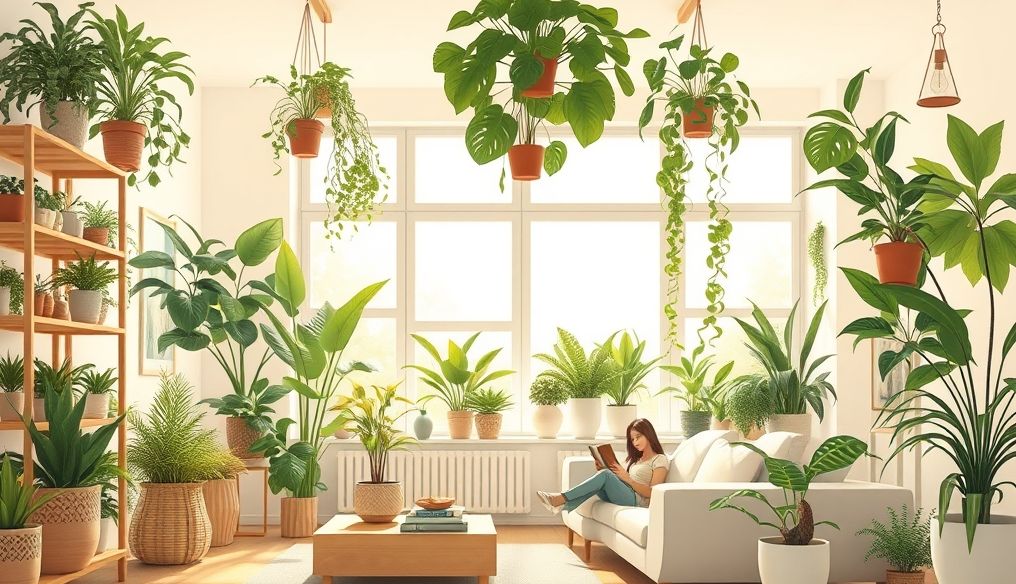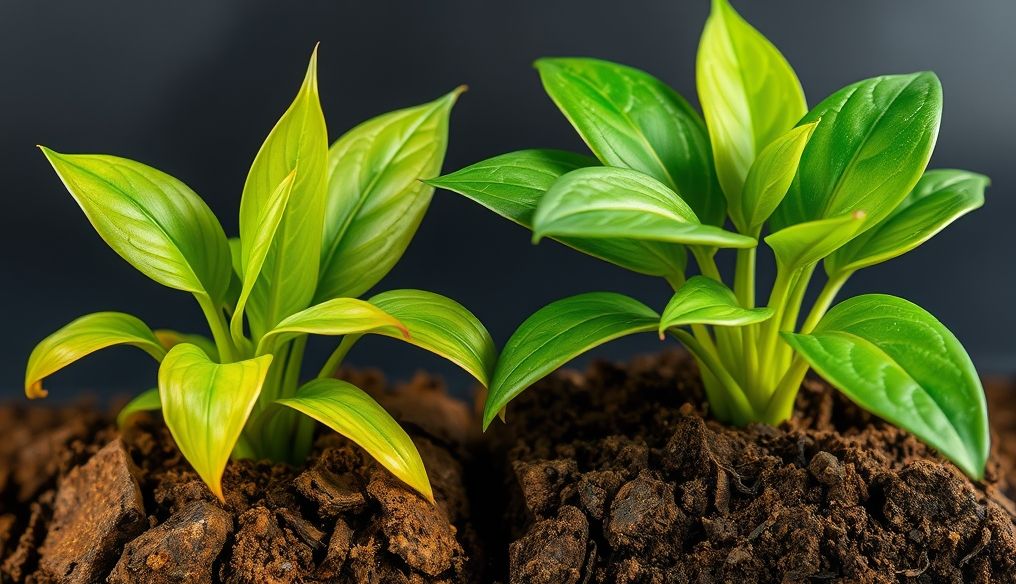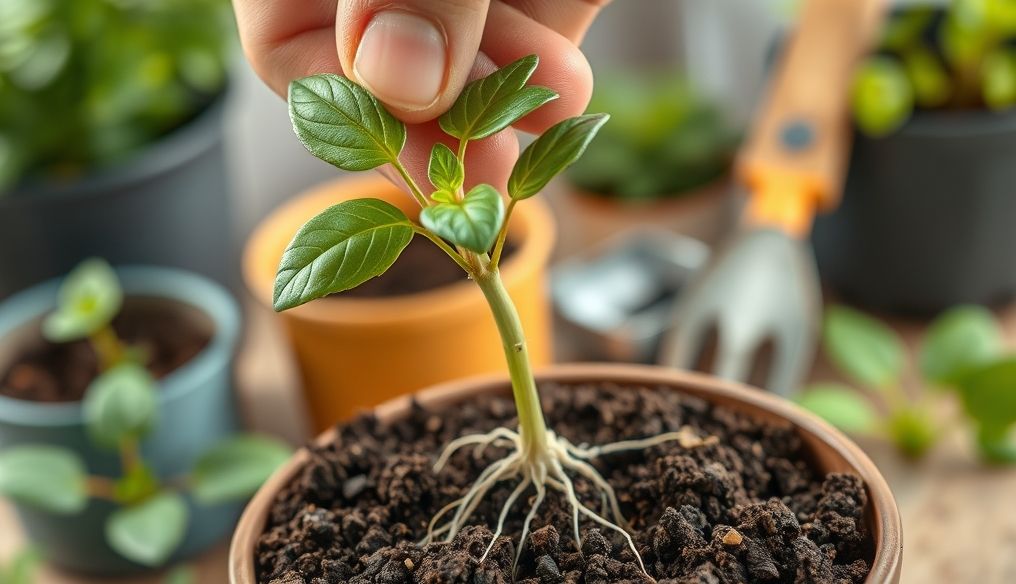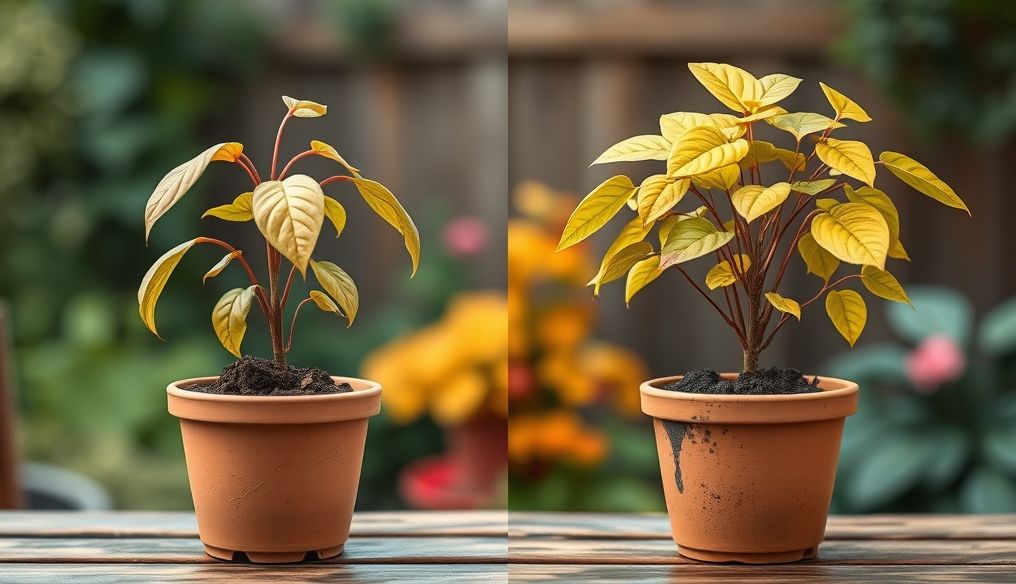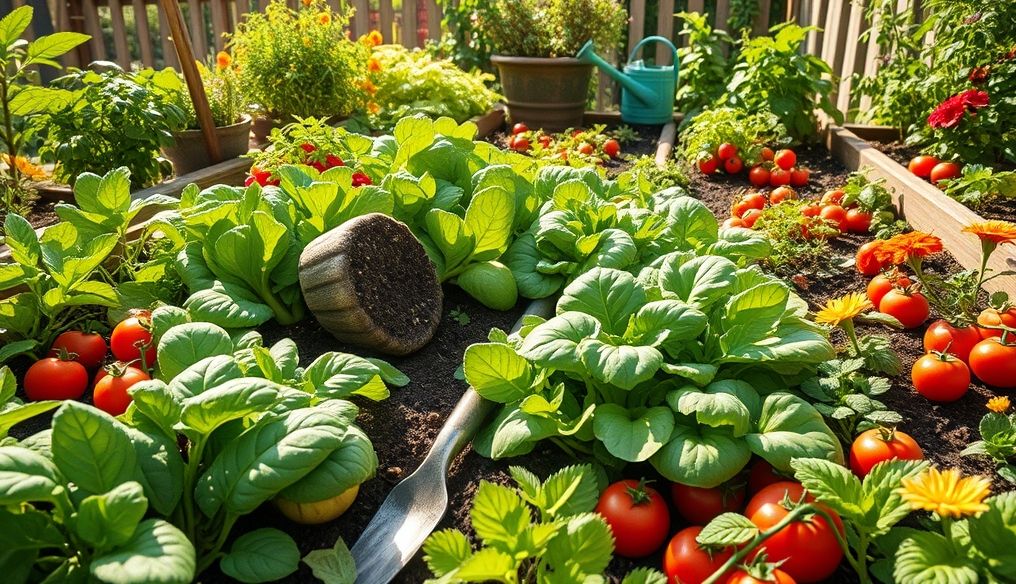Introduction: The Magic of Green Plants and Their Impact on the Psyche
In a world dominated by noise and daily pressures, the search for a quiet and comfortable haven has become a necessity. Nature has always been associated with serenity and relaxation, but what about bringing a piece of that nature into our homes? Can houseplants play an effective role in improving our mood and reducing stress? This is what we will discuss in detail in this article.
Chapter 1: Science Reveals the Psychological Benefits of Plants
1.1. Scientific Studies Confirm the Positive Impact
Numerous scientific studies have shown that having plants indoors can improve mood and reduce levels of stress and anxiety. For example, a study published in the Journal of Environmental Psychology found that students working in a room with plants felt less stressed and more focused.
Another study conducted at Kansas State University revealed that patients who had plants in their hospital rooms needed less pain medication and recovered faster.
1.2. How Do Plants Improve Mood?
The positive impact of plants on mood is attributed to several factors:
- Air Purification: Plants absorb carbon dioxide and release oxygen, improving air quality and reducing headaches and fatigue.
- Stress Reduction: Looking at green plants can lower heart rate and blood pressure, promoting a sense of relaxation.
- Improved Focus: Plants help improve focus and attention, increasing productivity at work or study.
- Enhanced Sense of Well-being: Caring for plants can give a sense of accomplishment and satisfaction, boosting self-confidence.
Chapter 2: Plants and Their Role in Relieving Stress and Anxiety
2.1. Plants as a Therapeutic Aid
Plants are increasingly used as a therapeutic aid for people suffering from stress and anxiety. Plants can help create a calming and relaxing environment, facilitating the process of relaxation and meditation.
Therapeutic gardens, which are green spaces specifically designed to promote mental health, are a prime example of the use of plants in therapy.
2.2. Types of Plants That Help with Relaxation
Some plants are particularly known for their ability to promote relaxation and relieve stress, including:
- Lavender: The scent of lavender is soothing and helps with sleep.
- Jasmine: The scent of jasmine reduces anxiety and improves mood.
- Chamomile: Chamomile is a nerve relaxant and helps with relaxation.
- Snake Plant: Purifies the air and reduces stress.
- Peace Lily: Removes toxins from the air and promotes a sense of calm.
Chapter 3: Plants and Improving Sleep Quality
3.1. The Role of Plants in Air Purification and Improved Breathing
Plants play an important role in purifying the air from pollutants and toxins, improving the quality of the air we breathe. This in turn can improve sleep quality, especially for people who suffer from allergies or asthma.
Some plants, such as snake plant and aloe vera, release oxygen at night, making them an excellent choice for the bedroom.
3.2. Recommended Plants for the Bedroom
In addition to snake plant and aloe vera, there are other plants recommended for the bedroom, such as:
- Spider Plant: Purifies the air and removes formaldehyde.
- Aloe Vera: Releases oxygen at night and soothes the skin.
- Gardenia: Its scent is soothing and helps with sleep.
Chapter 4: Plants as a Treatment for Seasonal Depression
4.1. The Effect of Natural Light on Mood
Natural light has a significant impact on our mood. During the winter, when daylight hours are short, some people may suffer from seasonal affective disorder (SAD). Plants can help compensate for the lack of natural light by providing refreshing green color and improving air quality.
4.2. Plants That Help Overcome Seasonal Depression
Some plants that can help overcome seasonal depression include:
- Flowering Plants: Add color and joy to the home.
- Plants with Large Leaves: Absorb more light and release more oxygen.
- Aromatic Plants: Their scents improve mood and promote relaxation.
Chapter 5: Home Gardening as a Therapeutic Hobby
5.1. Benefits of Home Gardening for Mental Health
Home gardening is not just a fun hobby, it is also an effective treatment for mental health. Caring for plants can reduce stress, anxiety and depression, and enhance feelings of well-being and accomplishment.
Home gardening helps connect with nature, develop patience and responsibility, and improve focus and attention.
5.2. Tips for Starting Home Gardening
If you are thinking of starting home gardening, here are some tips:
- Start Small: Choose plants that are easy to care for.
- Learn the Basics of Gardening: Find information about plants' needs for light, water, and soil.
- Dedicate Time to Caring for Plants: Make it part of your daily routine.
- Enjoy the Process: Don't just focus on the results, enjoy the process itself.
Chapter 6: Choosing the Right Plants for the Home
6.1. Considering Lighting and Humidity Conditions
When choosing plants for the home, it is important to consider the lighting and humidity conditions in each room. Some plants need a lot of light, while others prefer shade. Some plants need high humidity, while others can tolerate drought.
6.2. Plants Suitable for Beginners
If you are a beginner in the world of plants, here are some plants that are considered easy to care for:
- Snake Plant: Tolerates shade and drought.
- Spider Plant: Propagates easily.
- Cactus: Needs little water.
- Pothos: Grows quickly and adapts to various conditions.
Chapter 7: Integrating Plants into Home Decor
7.1. Plants as Aesthetic Elements
In addition to their health and psychological benefits, plants are also great aesthetic elements that can add a touch of nature and elegance to any home. Plants can be used to decorate shelves, tables, windows, and even to create green walls.
7.2. Ideas for Arranging Plants in the Home
Here are some ideas for arranging plants in the home:
- Use plant pots of different sizes, shapes, and colors.
- Place plants in groups to create a strong visual impact.
- Hang plants from the ceiling or walls to save space.
- Use plants to divide spaces in the room.
Chapter 8: Tips for Keeping Houseplants Healthy
8.1. Proper Watering, Fertilizing, and Lighting
To keep houseplants healthy, it is important to provide proper watering, fertilizing, and lighting. Follow the instructions for each plant, and avoid overwatering or fertilizing.
8.2. Pest and Disease Control
Houseplants may be susceptible to pests and diseases. Inspect plants regularly, and if you notice any abnormal signs, treat them immediately with natural insecticides or fungicides.
Conclusion: Plants... Companions of Mental Health
In conclusion, it can be said that houseplants are not just decorative elements, but are true companions of mental health. Plants can improve mood, reduce stress and anxiety, improve sleep quality, and help overcome seasonal depression. So, don't hesitate to bring more green plants into your home and enjoy their many benefits.
